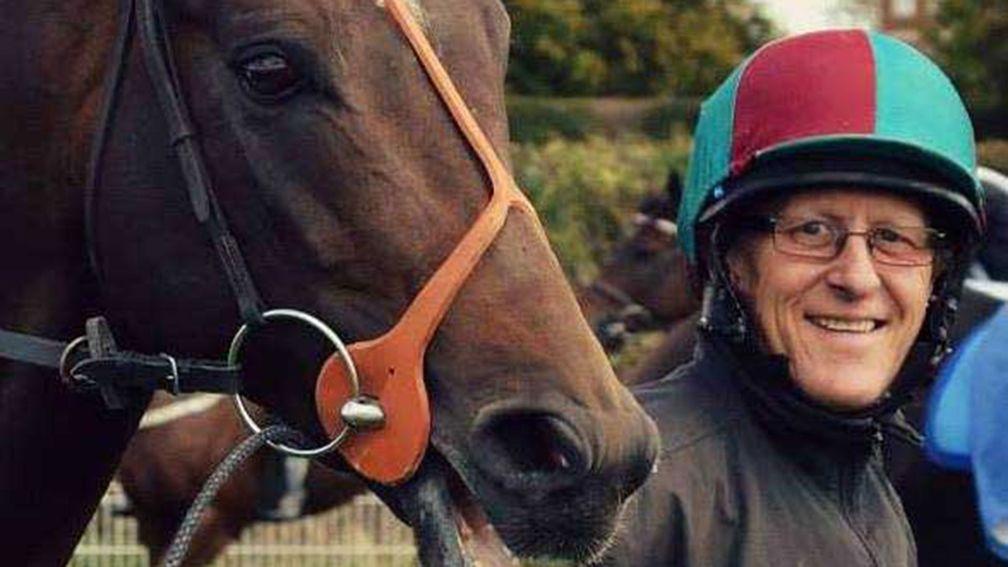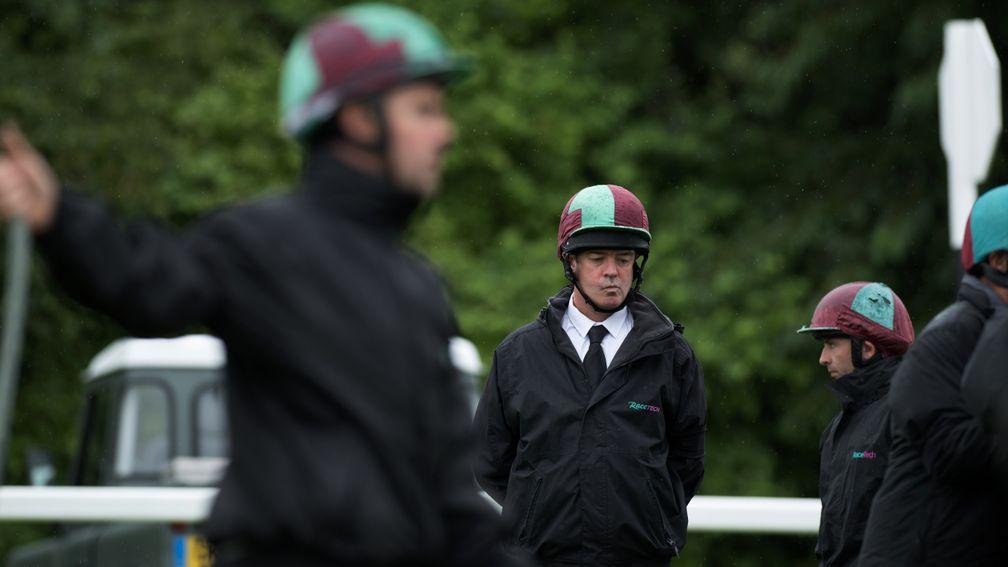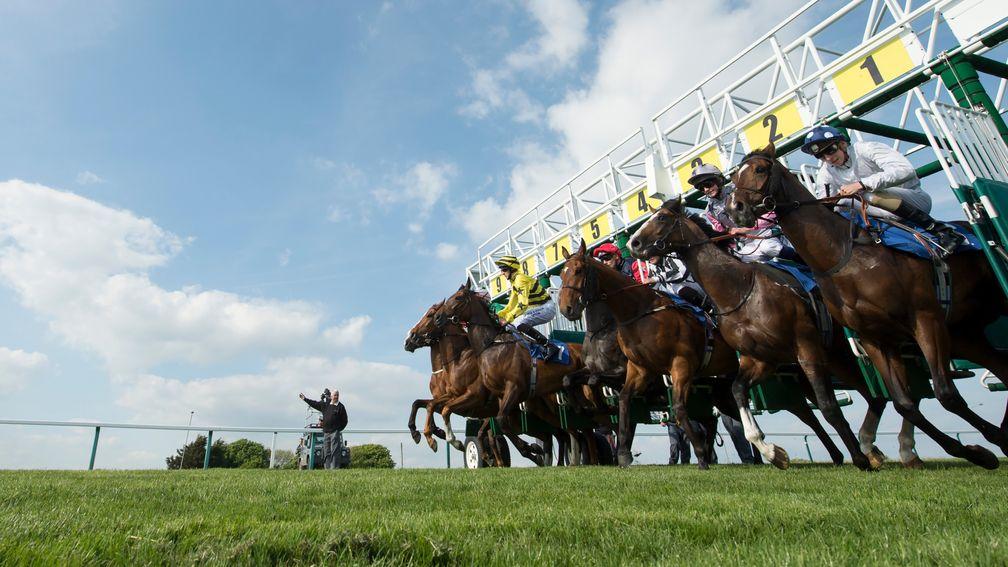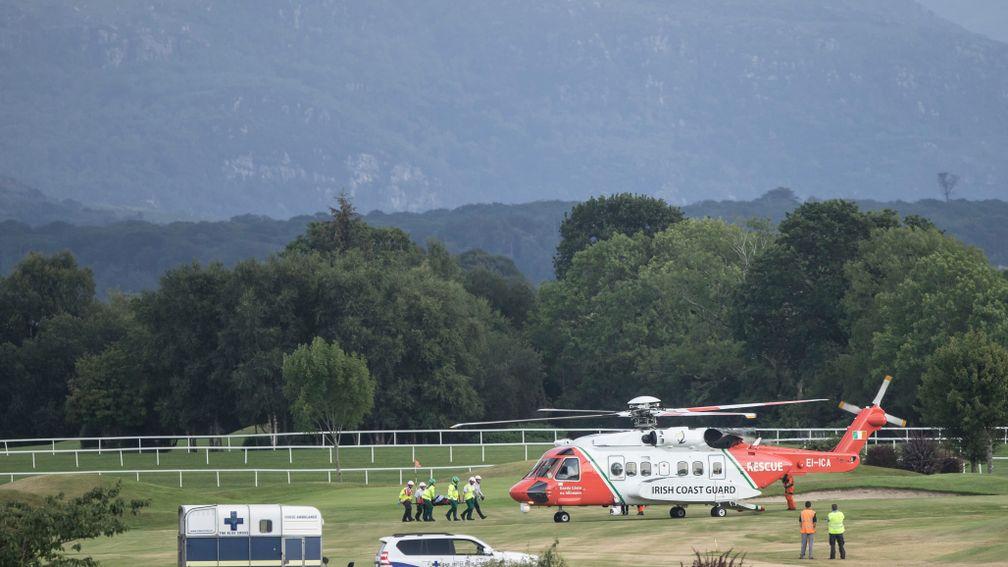A tragedy that reminds us of the thanks owed to so many in the sport

I did not know Stephen Yarborough.
In all probability, unless you are a Flat jockey or worked with him on a British racecourse, you will not have known him either. There are many others, like Steve, we neither know nor even ever hear about as individuals, yet without them the sport could not function. Now seems a particularly good time to say thanks.
At Haydock on Saturday evening they thanked Yarborough with a minute of applause, a means of paying tribute to a recently deceased person or group of people that becomes ever more widely used.
At such a raw time, and at the scene of the accident that claimed Yarborough's life, some will feel a minute's silence might have been more appropriate. In the wider sense, however, to Yarborough, his colleagues and many others connected to the sport, much gratitude is owed.
Towards the front or back of a racecard, racecourses generally provide a list of the track's key staff members plus the card's operating officials. When attending a Flat fixture I do not ever recall seeing in such a list the names of the stalls handlers working that day. Perhaps some racecourses do name them, or alternatively there may be easily explainable reasons why none do, but clearly their role is vital.

Speaking at Newbury on Saturday, Arnie Jones, leader of the afternoon's RaceTech stalls team, neatly summed up his perception of how the sport views those who do his job.
"I wouldn't say we're taken for granted but I would say we are just expected to get on with things," he said. "We don't want any recognition, though. It's our job and we just get on with it."
It was arguably a generous overview. In reality, we probably do take stalls handlers for granted, not because the job they do is anything other than hugely important, but rather because they do it so incredibly well. We, the racing audience, become blase about the dangers they face.
Given the fact these brave men position themselves at the back of thoroughbreds who have the potential to inflict terrible damage at a moment's notice, it is astonishing injuries are not reported on a regular basis. Given it is the handlers who will often leap into the starting stalls to free a trapped horse or aid a jockey, it is remarkable Yarborough was the first handler to be killed on duty since starting stalls were introduced 52 years ago.
That he should die in such a freak accident, one in which not a single horse was involved, makes his passing even harder to bear.
Accepting the news will have been hard for RaceTech's other stalls handlers, the BHA's starters and the members of the Flat weighing room.
Paul Hanagan and Jim Crowley, past and present champion jockeys, made that clear when speaking at Newbury on Saturday.
Hanagan, who had worked alongside Yarborough throughout his riding career, most of which has been spent based in the north, was not merely saying the right words when he spoke of being "absolutely gutted". He truly meant those words. He also meant it when he spoke of the respect he and his fellow riders have for the stalls handlers.

Gratitude had been expressed earlier in the week by the family of top apprentice Ana O'Brien following the terrible Killarney fall that left her injured but, mercifully, not as severely as we initially feared might be the case.
During a horrible and deeply worrying few days for Aidan and Annemarie O'Brien, their son Joseph lifted some weight off their shoulders by assuming the role of family spokesman. His parents will be proud of him, for he spoke extremely well when relaying news about Ana and also in thanking all those who had helped his sister at a time when such help was imperative.
The marvellous Adrian McGoldrick and his fellow racecourse medical officers, the Order of Malta, the veterinary team, Val O'Connell and the Killarney groundstaff, Peter Murchan, the air medical crew and Paul Redmond plus his team at Cork University Hospital were all thanked by the dual Derby-winning jockey-turned-trainer, who represents a family who have always been quick to pay tribute to the backroom staff at Ballydoyle following major victories.

Those of us unconnected to the operation will not know the names of those stable employees, just as we do not generally know the names of the stalls handlers, medics, ambulance drivers, vets, divot treaders, catering staff, car park attendants, cleaners or countless others who are either essential to the staging of a race meeting or make it far more enjoyable than it could possibly be without them.
We do, however, all now know the name of Stephen Yarborough. The circumstances in which we have come to do so are utterly tragic.
Those who carry out the job Yarborough did so well for 30 years may not necessarily want our recognition, but they, and so many others who serve the sport on racecourses, most definitely deserve it.
Feeling nostalgic about Maxine Juster
The quality of racing on the Saturday just gone was not great but nor was it great in the world that existed before the Weatherbys Super Sprint.
The big-money juveniles' dash came along in 1991. On the corresponding Saturday in 1990 the afternoon's principal meeting was still staged at Newbury, where the feature race was the Kerridge Computers Trophy, a classy handicap for three-year-olds over 1m5½f that for most of its life had been known as the Morland Brewery Trophy.
Its final running as the card's showpiece attraction was won by the Henry Cecil-trained and Steve Cauthen-ridden Applecross, who went on to finish second in the Park Hill and Princess Royal Stakes.
One hour later the same combination took the Hatherden Stakes, a 1m4f conditions prize for three-year-olds, this time with Millionaire's Row in the soon-to-be-revived maroon and white of Sheikh Mohammed. Next time out Millionaire's Row won a Thirsk match at 1-20 but he won nothing else, so seldom gets a mention when the sheikh's former stars are discussed.
Newmarket's card was host to another long-standing sponsored handicap, the Food Brokers Trophy, like the Kerridge/Morland a race for three-year-olds, but this time over a mile.
Newmarket's card also included the Food Brokers Plax Stakes, a 1m4f graduation contest for amateur riders that was won by Sara Cumani aboard Crack for husband Luca. On what was a busy day for amateurs, Clare Balding bagged Ayr's PG Tips Tea Cup Handicap on Song Of Sixpence, trained by her father Ian for Paul Mellon.
All these races are long since gone (at least under their former titles), while also now defunct is the Scottish Classic that Ayr had showcased the previous Saturday.
The 1m2f Group 3 later became a Group 2 and, having initially been christened as the Scottish Derby, reverted to that title for its final days, which ended when Imperial Stride gave Sir Michael Stoute his fourth victory in five years on a Monday afternoon in 2005. The Scottish Derby became the York Stakes, whose first running on the Knavesmire in 2006 Stoute also captured, this time with Best Alibi.
Stoute also used to regularly contest, and also regularly win, the lady amateur riders' conditions race over Ascot's round 'Old Mile' that traditionally opened what was then King George VI and Queen Elizabeth Diamond Stakes day. The contest still exists as a 7f handicap but is a little lacking in the lustre of that which came before.

Thirty years ago Princess Anne won the race for the diamonds on Ten No Trumps, trained by Stoute, who in most other years seemed to have a leading contender ridden by Maxine Cowdrey (nee Juster). The 1995 race was a particularly strong one with Stoute and Cowdrey combining to score with Desert Shot, while the next five horses home were partnered by Amanda Harwood (now Perrett), Lydia Pearce, Maureen Haggas, Sara Cumani and Jane Chapple-Hyam, while Eve Johnson Houghton was back in ninth.
They don't make lady amateur rider races like that anymore.
This is available free as a sample. Members can read exclusive interviews, news analysis and comment from 6pm daily on racingpost.com
Published on inComment
Last updated
- We know that times are tight - but racecourses really do need to step up and improve outdated weighing rooms
- The budget has heaped even more trouble on racing - and I fear many trainers will now decide the numbers just don't add up
- Why I think Cheltenham Festival handicaps need to change - JP McManus writes exclusively for the Racing Post
- No-one has ever emerged from the womb wearing a trilby - racing's future survival hangs on pursuing a young audience
- Four score and ten just a number to Peter Harris as July Cup triumph shows there's more to the elderly than medical conditions
- We know that times are tight - but racecourses really do need to step up and improve outdated weighing rooms
- The budget has heaped even more trouble on racing - and I fear many trainers will now decide the numbers just don't add up
- Why I think Cheltenham Festival handicaps need to change - JP McManus writes exclusively for the Racing Post
- No-one has ever emerged from the womb wearing a trilby - racing's future survival hangs on pursuing a young audience
- Four score and ten just a number to Peter Harris as July Cup triumph shows there's more to the elderly than medical conditions